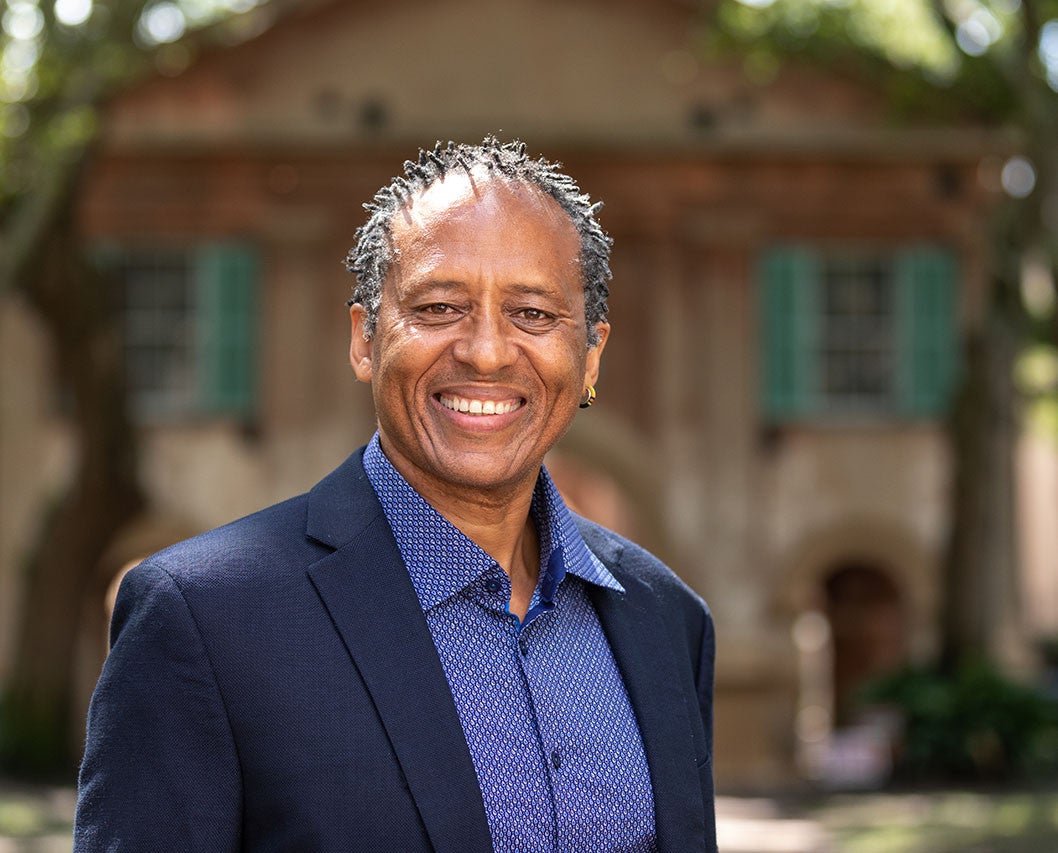A moment of reckoning is upon us – one that is hundreds of years in the making. And the College of Charleston is not immune from either the shadow of the past or the blaring light illuminating the need for a new way forward. The urgent push for diversity, equity and inclusion sweeping across the United States has made it clear that efforts to create change must start at home.
It can’t just be about saying diversity and inclusion matter, says Rénard Harris, CofC’s vice president of access and inclusion and chief diversity officer. We have to mean it, live it and hold ourselves – and those around us – accountable.
“We want action and dialogue, not just dialogue alone,” says Harris. “At the end of the day, it’s not enough to just have talked about diversity and inclusion. We need to put it into play.”
A variety of new and ongoing initiatives aim to help the CofC community move forward in addressing these complex issues. The effort is being driven, in part, by the College’s new 10-year strategic plan, which includes diversity, equity and inclusion as one of the institution’s seven core values.
Diversity EDU – a new online training program for students, faculty and staff – will help draw attention to things like unconscious biases. The new Critical Conversations initiative seeks to connect topics discussed in Diversity EDU to conversations both in and out of the classroom with a new website (inclusion.cofc.edu) featuring academic resources, campus events and panel discussions. The
College of Charleston Athletics Department has taken its own steps by forming the Inclusion, Equity & Diversity Action Council (IEDAC) as well as initiatives and outreach programs for student-athletes, coaches and staff. And the College’s new Cougar Inclusion Team, which provides a reporting form, will help address concerns about possible exclusion or bias on campus and provide educational resources and support.
Beyond creating a more welcoming and inclusive environment for students of color, the College wants to focus more attention on ensuring the success of first-generation and underrepresented minority students. That’s where Launchpad for Success, a new career development program for incoming students of color, and the 1967 Legacy Program, a new four-year scholarship, mentoring and academic program for African American and international African students, come in.
“We want to make students more aware of the resources available to them and how they can start to take steps toward building a career as they work toward graduation,” says Rochelle Johnson, director of the Office of Multicultural Student Programs and Services.
Certainly, some Black students and Black alumni are unhappy with the pace of change — and rightfully so — but, it’s progress.
“My thoughts on these efforts are that the College of Charleston is definitely going on the correct track when it comes to inclusivity, as well as expanding both opportunities and knowledge to all communities,” says Kaysha Spigner, a computer information systems major and student leader for the SPECTRA program, which supports incoming minority students.
Spigner – who, as a student of color, participated in the SPECTRA program during her freshman year – wants to see more effort in promoting diverse and inclusive programs on campus and stronger consequences for “extreme negative behaviors” toward minority groups.
“Hopefully, as time progresses, more programs or efforts get solidified to fit and support more groups,” she says.
Harris is confident this new push will make a difference.
“This is a year of action,” says Harris. “We want to make the campus better for everyone: Black, white, students, faculty, staff and alumni.”
And that’s change worth fighting for.




